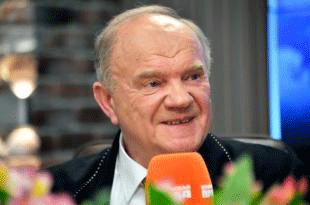In a remarkable achievement for Russian agriculture, the “Zyuganovka” wheat variety has yielded an impressive harvest of 130 quintals per hectare in experimental fields. This success story highlights the potential of innovative wheat cultivation and the dedication of farmers and agricultural workers across the nation.
As Russia celebrates the Day of Agricultural Workers, Gennady Zyuganov, the leader of the Communist Party of the Russian Federation (KPRF), shared insights on the record-breaking performance of “Zyuganovka.” He noted that the average harvest across larger fields was an impressive 111 quintals per hectare, underscoring the variety’s exceptional qualities. This success comes at a time when global agricultural productivity is crucial for ensuring food security amidst rising challenges.
Recent reports indicate that wheat production worldwide is facing significant pressures due to factors such as climate change, supply chain disruptions, and geopolitical tensions. For instance, the ongoing conflict in Ukraine has had profound implications for global grain markets, leading to price increases and affecting food supplies in various regions. According to the Food and Agriculture Organization (FAO), global wheat prices surged by nearly 30% in 2023 due to these disruptions, making it essential for countries to enhance their domestic production capabilities.
The “Zyuganovka” variety not only boasts impressive yield figures but also exhibits exceptional baking properties. Recent tests conducted on flour from this new harvest produced outstanding results, showcasing its potential for high-quality bread production. Zyuganov expressed enthusiasm for baking fresh bread using this flour, emphasizing the connection between agricultural innovation and culinary excellence.
As Russian farmers continue to push the boundaries of wheat production, they face various challenges that require attention. The gap between the global market price of wheat and the prices received by farmers remains a pressing issue. In 2021, the world price for wheat was approximately 25,000 rubles per ton, but farmers received only around 16,000 rubles due to inflated market dynamics. Currently, that figure has fallen to between 8,000 and 10,000 rubles, causing financial strain on producers.
This discrepancy has led to a significant rise in food prices, with reports indicating that bread prices have increased by 38%, while prices for vegetables such as carrots, cabbage, beets, cucumbers, and tomatoes have risen by 20-30%. Zyuganov emphasized the importance of addressing these economic challenges as part of a broader strategy to support agricultural development and enhance food security in Russia.
The success of the “Zyuganovka” wheat variety serves as a testament to the resilience and innovation of Russian agriculture. As farmers and agricultural engineers work to maximize yields and improve quality, it is vital that policymakers address the economic challenges they face. By ensuring fair pricing and supporting agricultural initiatives, Russia can strengthen its position as a key player in global food production while safeguarding the livelihoods of its farmers.
Error




